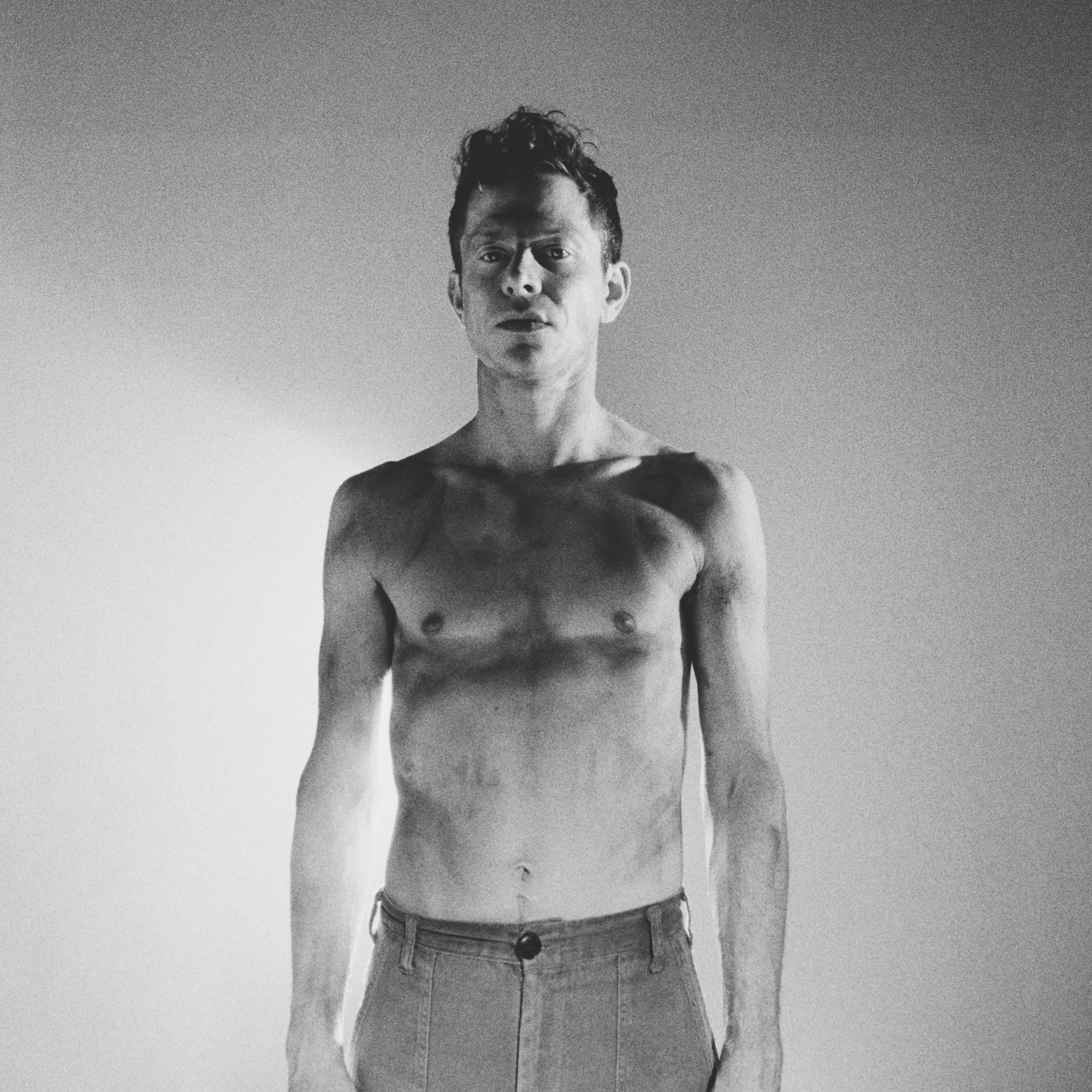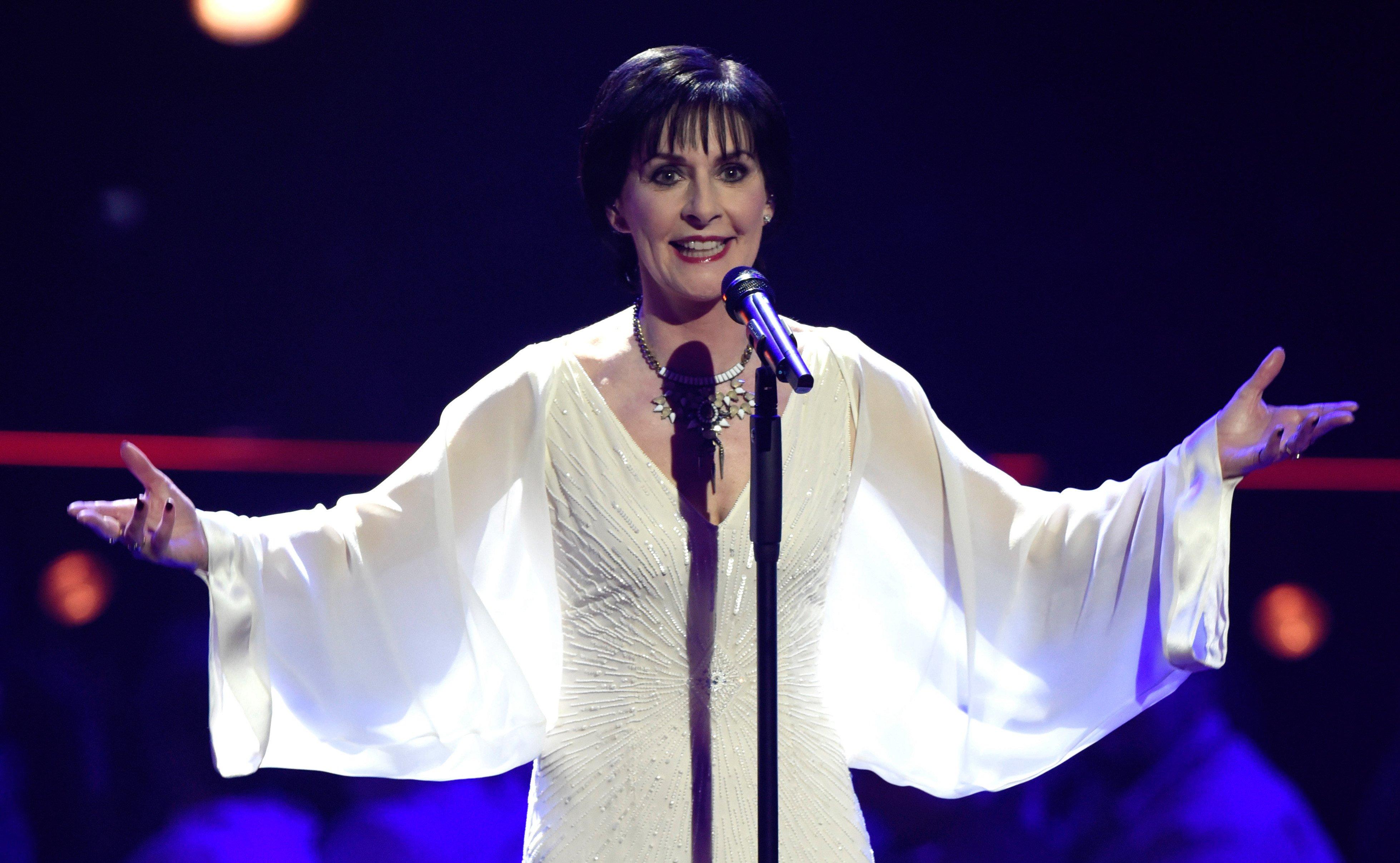Mike Hadreas, the creative force behind Perfume Genius, has been whispery and confessional. (See: his first two albums, Learning and Put Your Back N 2 It, which addressed physical abuse, addiction and pain.) He’s been confrontational. ("No family safe/when I sashay," he sang on 2014 track "Queen.") And thanks to a string of experimental performances with the YC Dance Company in November of 2019, he’s even become a dancer—though to hear him tell it, that particular skill is a work in progress. But when it came time to record his fifth album, all Hadreas wanted to be was himself.
Set My Heart On Fire, Immediately (out May 15 via Matador) marks Hadreas' move into a different sonic arena, its Blake Mills-produced sound stripped of the lavish excesses he’s explored on previous releases. It isn’t a more emotive release (Hadreas admits everything he does is extremely personal), but rather a space where jagged guitars meet vulnerability ("The lock on the door is barely holding/Can you just wait here with me?"), ambling synth-pop beats become a place to yearn for an unobtainable crush ("I cross out his name on the page") and ballads are sung with a newfound immediacy.
Ahead of the release, Hadreas spoke with the Recording Academy about fate, rolling in the dirt and how dance helped him reassess his relationship, both with music and himself.
<style>.embed-container { position: relative; padding-bottom: 56.25%; height: 0; overflow: hidden; max-width: 100%; } .embed-container iframe, .embed-container object, .embed-container embed { position: absolute; top: 0; left: 0; width: 100%; height: 100%; }</style><div class='embed-container'><iframe src='https://www.youtube.com/embed/ln4S83JeY2Y' frameborder='0' allowfullscreen></iframe></div>
You seem to have made this album about emotional freedom at a time when we're not really getting a lot of that.
It's weird to make a record that feels really physical and about connection and being in the world and being a part of it, and then have that be something that's not allowed.
Do you believe in creative fate?
I think definitely it was what I needed and the kind of things needed to wrestle with and think about right now, and then. I don't have it all figured out, and I don't know exactly which way I'm supposed to go. But I know I'm supposed to go somewhere with it. I guess I've always felt very solitary, and I thought that was required before the music. And now I'm realising that I can be connected and be more present and a part of the world and keep all of that outer space magic that I thought I could only access in my weird room by myself.
Where was that turning point for you when you realized it was okay to access that magic in public?
Me and my partner Alan moved to L.A. We were living in Tacoma, which was sort of a hermit-y nest, really cozy and much-needed for a long time. But in between records we started thinking, you know, maybe we want to be where we know more people or be can be more creative and not have to get on the plane to sing with someone. Stuff like that. And then, in the dance performance, that really blew up how I thought art could be made or how I work, because it required a whole new set of things and different roles and it shook me up a lot.
I love that even in your late 30s you still have these moments where you realize everything you thought has been turned on its head.
I know that it's eventually gonna lead to somewhere really rewarding. And I have some of those rewards right now, but it's still such a jumble. Which is when I was trying to detach from in the first place to kind of mess of trying to figure everything out. So, I know that all this stuff is like coming up and then I'm like thinking about it. Ultimately, I’m gonna move into something better. I wish the smoothing was less chaotic.
How did studying dance change your relationship with music?
Well, when I was in the room with all the dancers, I was watching them move and I found that they're writing, they're there in the place that I go to when I find myself in writing. And they're there right now with the air at with a chair with each other with me. And this is like, very new to me. I think also when I danced on stage, it's almost always a rebellion. It was just me throwing myself everywhere, just like slamming against stuff trying to get it out. There were some graceful moments, but not super considered and it was not very kind, and not very warm to my body, or warm to the stuff around me. I was landing with my head into something. I'm still going to do that, because I enjoy that and maybe just knowing that I enjoy is warming that up. But my body is considering things in a much more patient, calmer way. All the edges are kind of removed. And so, that was really thrilling to me. And I think of the music, it feels very physical, the record. And it feels very much like the portal I found by being really hyper-present and being in the world. Having all that like supernatural weight to it, and not having those things be separate.
<style>.embed-container { position: relative; padding-bottom: 56.25%; height: 0; overflow: hidden; max-width: 100%; } .embed-container iframe, .embed-container object, .embed-container embed { position: absolute; top: 0; left: 0; width: 100%; height: 100%; }</style><div class='embed-container'><iframe src='https://www.youtube.com/embed/vAoWMJTClqo' frameborder='0' allowfullscreen></iframe></div>
Was there a song or moment that pointed the way and helped you realize how you wanted this album to sound?
"Whole Life," I think. I wrote a lot of the songs in a batch and pretty quickly like one right after the other within like a week. And I think "Whole Life" was the first song that was the beginning of that batch. And I was just like inhabiting a certain way of singing and a way of like carrying myself even. Very performancey and almost classic. That felt very satisfying for to go there and have that the be the funnel that all the music was coming through that week.
It sounds like a lot kind of clicked into place for you at the same time.
Yeah. All these things that I'm thinking about can feel very abstract or confusing. And so, when I do click into something that feels purposeful and I have enough distance, I make a container for them. So, either been confusing, have that be okay or be tidied up and figure it out a little bit, with me throwing myself at it.
Do you believe you were tapping in a higher power or something otherworldly?
It's very confusing to me. And I think about it as music—like, is it this hyper-personal thing purely therapeutic and selfish? Or is it something spiritual thing that I'm getting close to that's like, beyond and magical? I like to think of it as both [earthly and magical]. And I listen to music that same way. The making of it, it's all fuelled by design. I'm trying to name things that I can't otherwise like, couldn't talk to you about. For to anybody who isn't myself. And so, I just keep buzzing on that frequency. Feels like really buzzing and I need to somehow get it out.
Is it ever difficult tapping into that, knowing that there's an audience waiting, and a whole bevy of social taboos about gender expression, sexuality and life to contend with?
It's just like a balance. I mean essentially I just do whatever I want. My presentation has always just been my presentation. I know that doing that is a choice and it means something. I'm packaging it and always the performance element to it no matter what, but I am actually literally performing to it continue doing it continually. It's more confusing now than it used to be. I used to play shows in whatever I was wearing off stage, and now I put things on, specifically to go on stage and I just think of it as like a world-building thing. It's that same combination of being really close to me, but also magnifying it or stealing and blowing it up. And even people keep asking, "Why are you dressed this way—presenting more traditionally masculine?" Just because I feel like it. But also, it's fun to play with that. Like, I'm serious about it because it's closed to me, but it's also a performance. I just want to be covered in dirt. I don't know how to explain it. Maybe like, further down in the record cycle, I'll be able to tell them exactly why I want to be covered in dirt all the time. But at this point, I don't really know. Just feels right.
<style>.embed-container { position: relative; padding-bottom: 56.25%; height: 0; overflow: hidden; max-width: 100%; } .embed-container iframe, .embed-container object, .embed-container embed { position: absolute; top: 0; left: 0; width: 100%; height: 100%; }</style><div class='embed-container'><iframe src='https://www.youtube.com/embed/DD6GnitHHRA' frameborder='0' allowfullscreen></iframe></div>
Where did the title Set My Heart on Fire, Immediately come from?
It's just greediness. Like, once I figured out these little things that I want or ways that I could get there, I just want all of it. I guess, being insatiable and being kind, usually not being restless and even younger. And now I feel like I have enough of a centre that I can let some of that in and have it not overwhelm me. And once I figured that out, I just didn't like will bring all of it to me.
I think it can be hard to admit how badly you want something.
A lot of my instincts are like—I just want to do something I shouldn't do. But I don't know why I shouldn't do it. Like, why not? I will want to just lay down on the ground when I’m supposed to be standing up. Nobody's gonna care. Why can I just lay down?
Does that instinct help you when you’re writing a song like "Jason," that’s so intensely personal? Would you have written it differently before going into yourself like this?
Maybe not in the exact same way. It's closer to how I how I started writing. It's like a story of something that already happened. You know, I put other stuff on it and I decorate it to make it song. But it's essentially based on a memory and my memory. And I think I always felt like that. When I think there's a little folder. Anything that's in between, like a feeling in between the lines. I feel like I kind of shared that feeling at the same time now. I've definitely been kinder to that memory now than I was when after it happened.
That's something that I'm learning a lot as an adult—just learning how to be kinder to my own memories.
Yeah, I mean, you did all that stuff for a reason. There's something really freeing about all the problems you have or developed. You have them because they worked at some point.
Do you believe in love first sight?
Yeah, I do, but I also believe that I could know a person like 30 years and then fall in love with them. Yeah, why not? We're all changing all the time.
Blake Mills On Staying Creative During Quarantine, Turning People Into Songs





